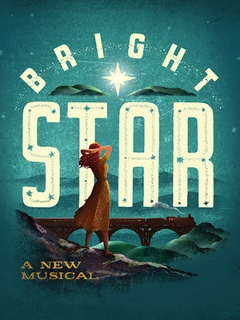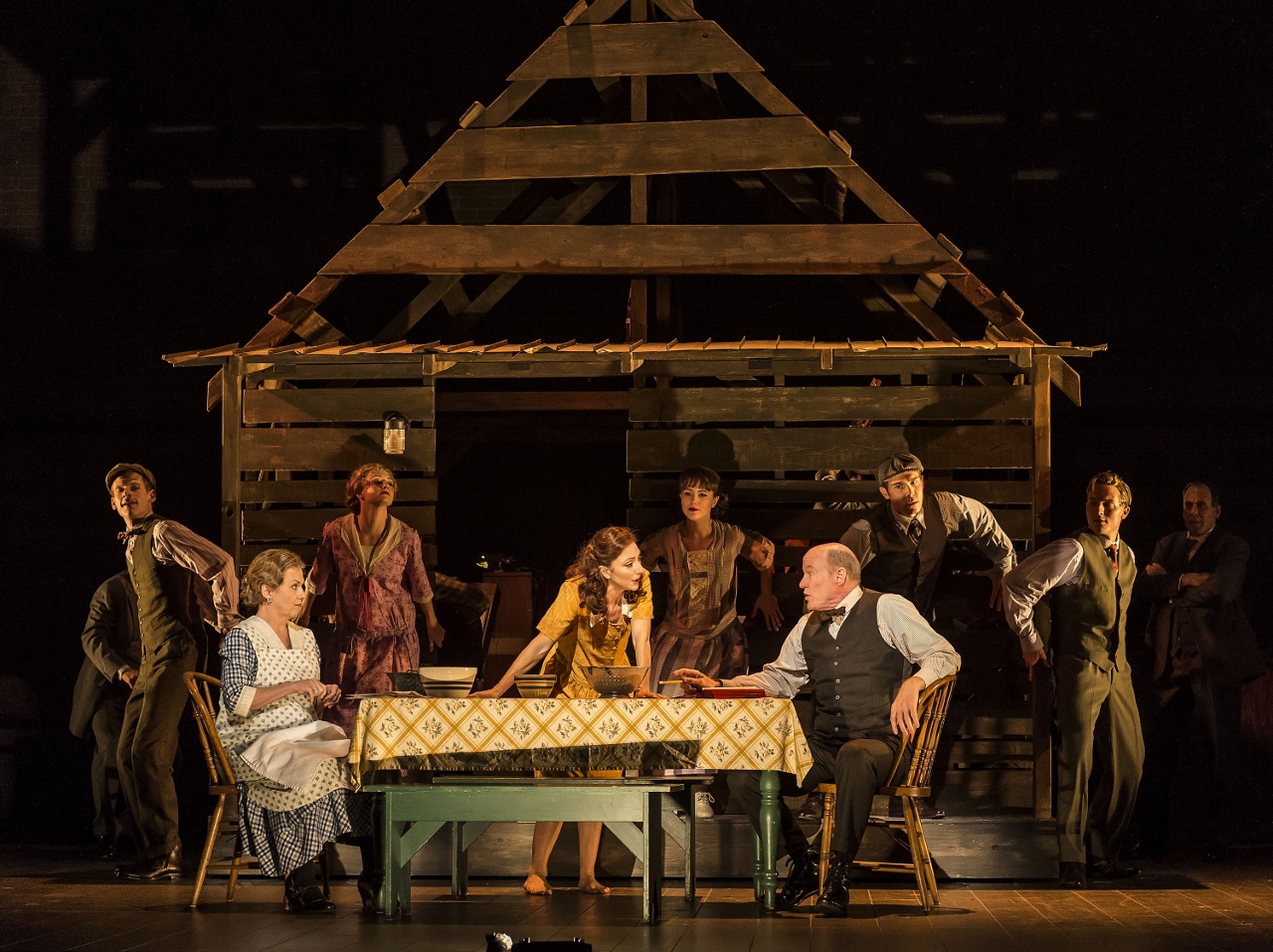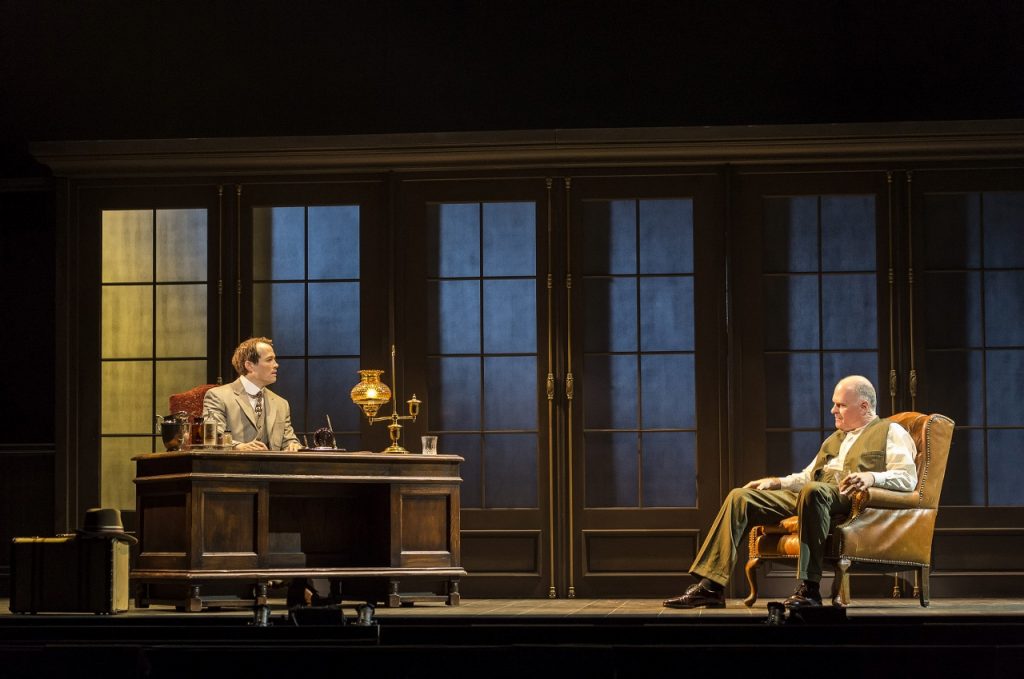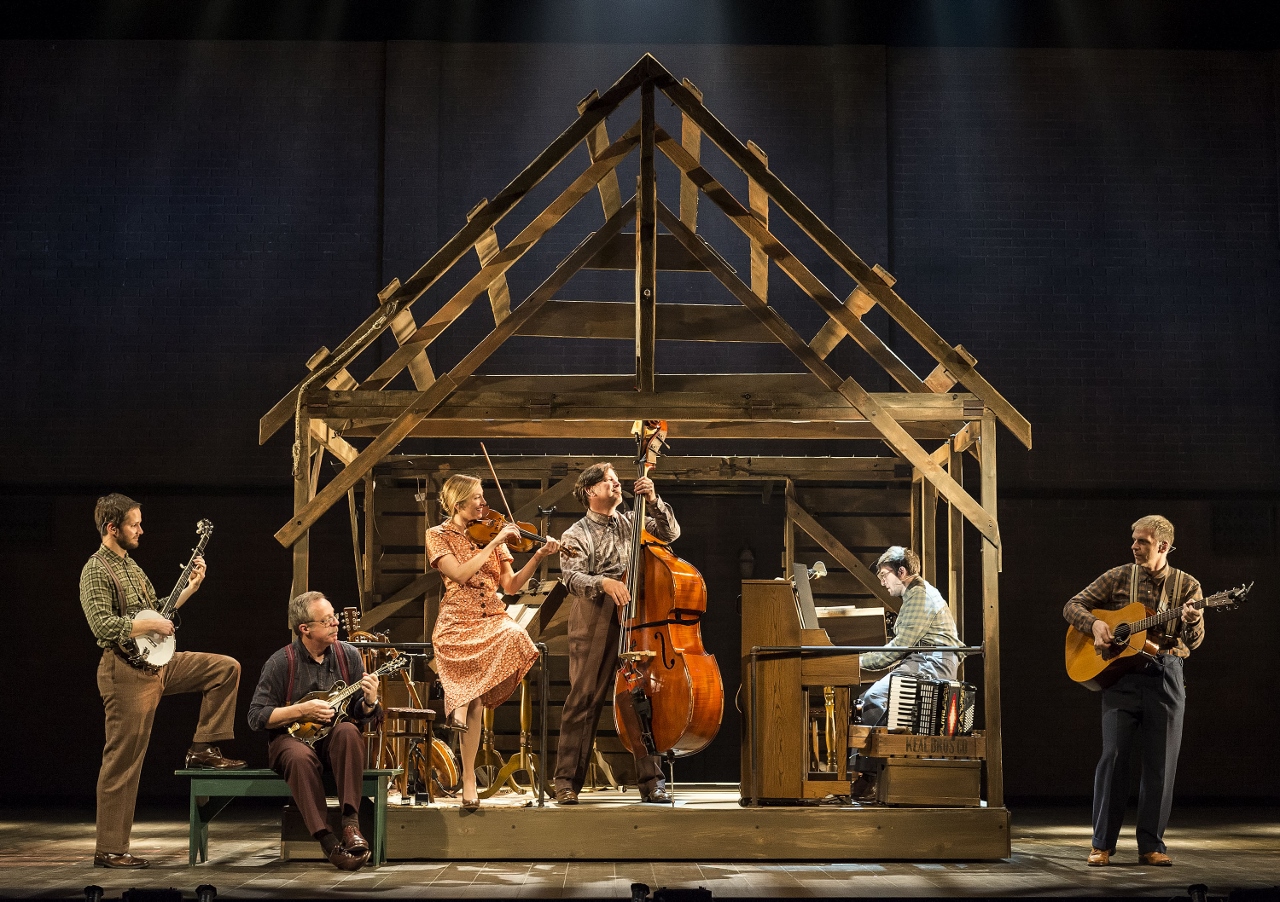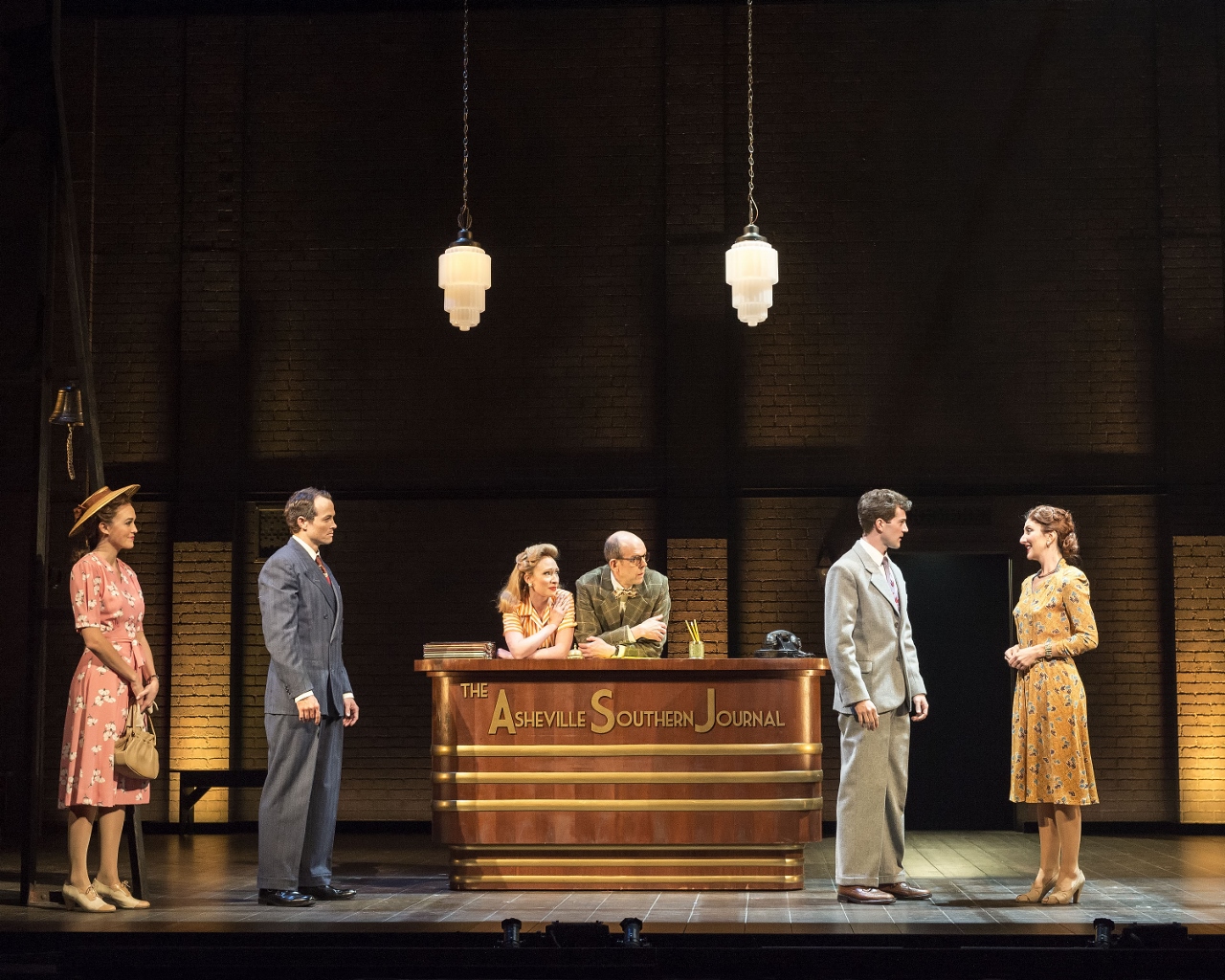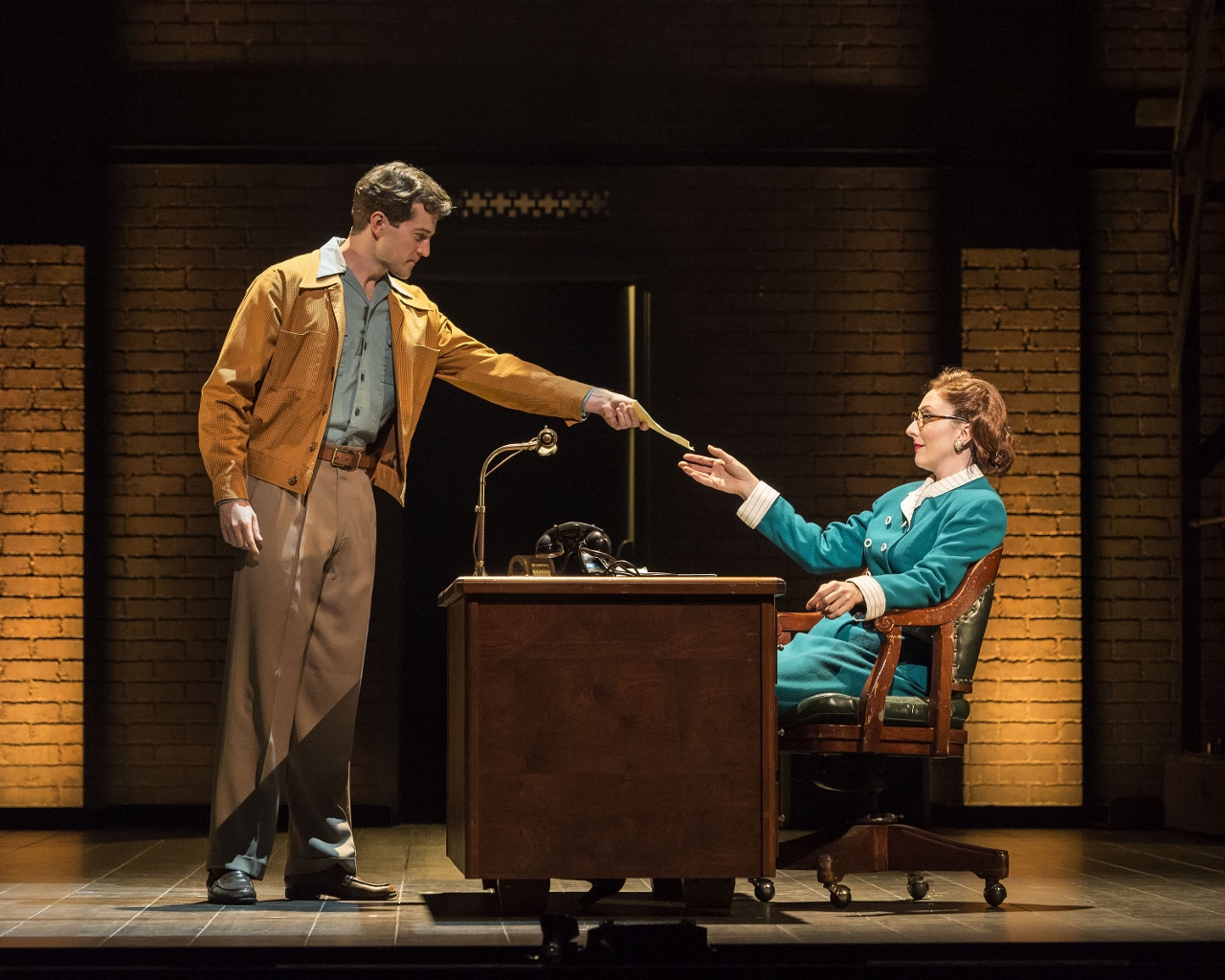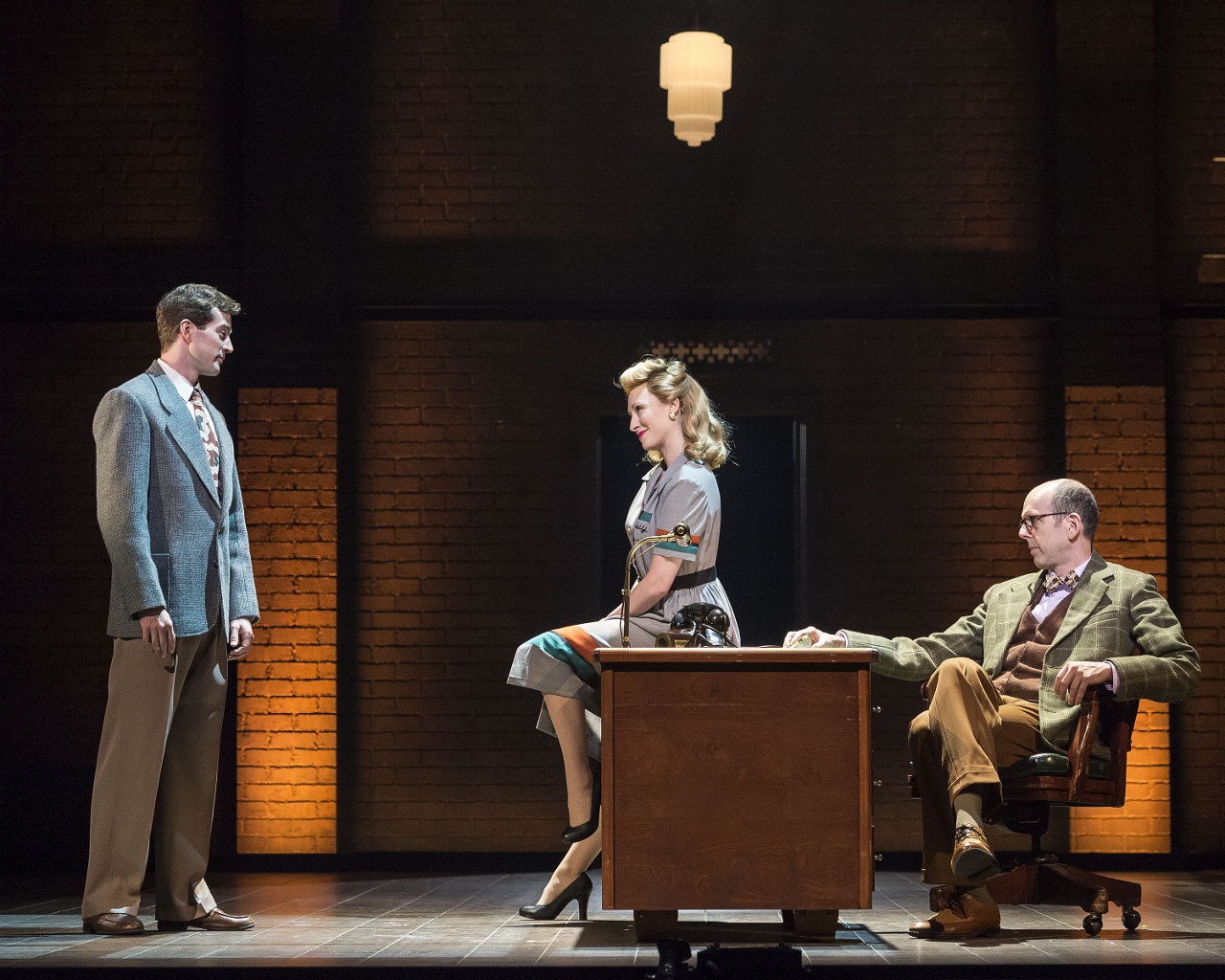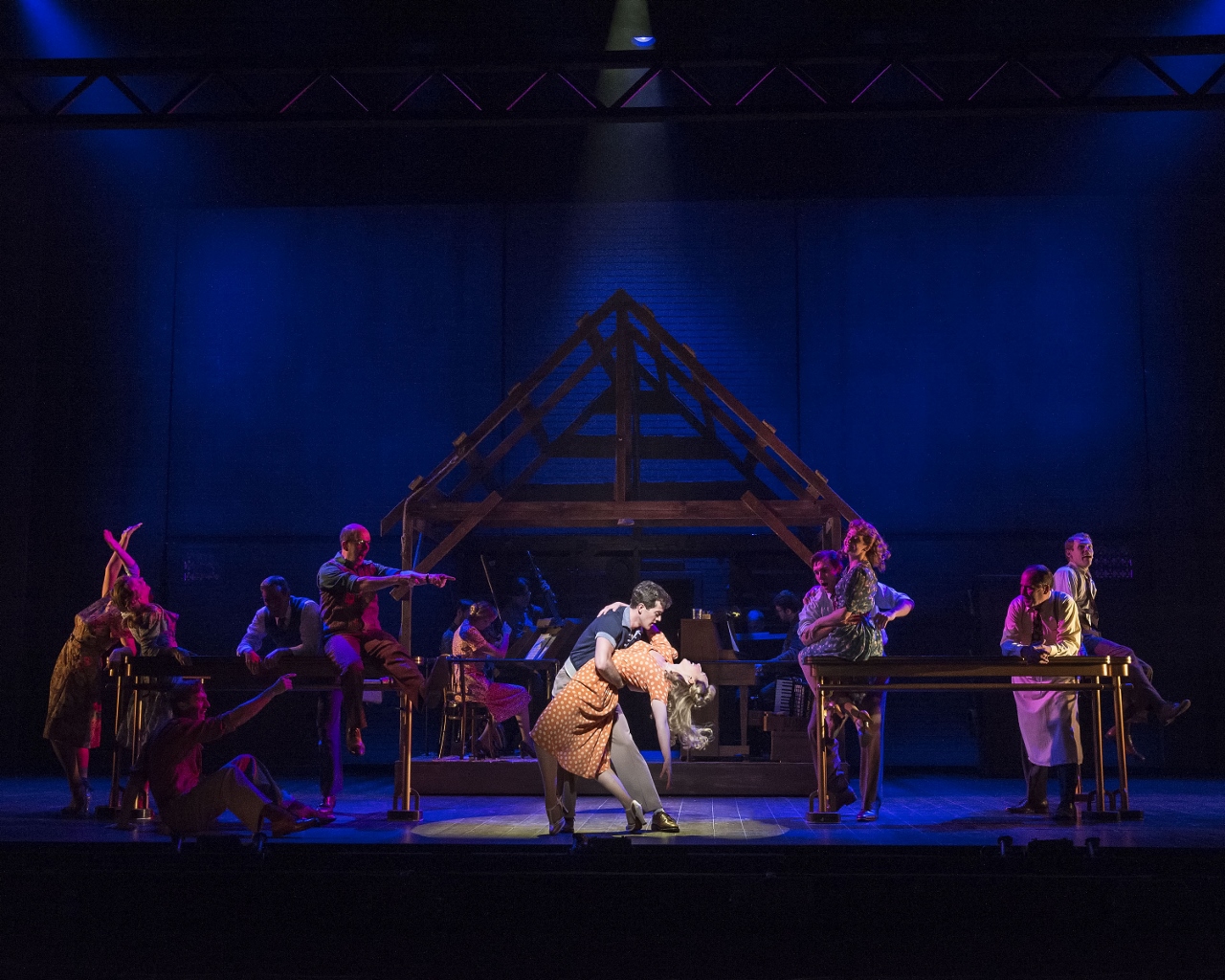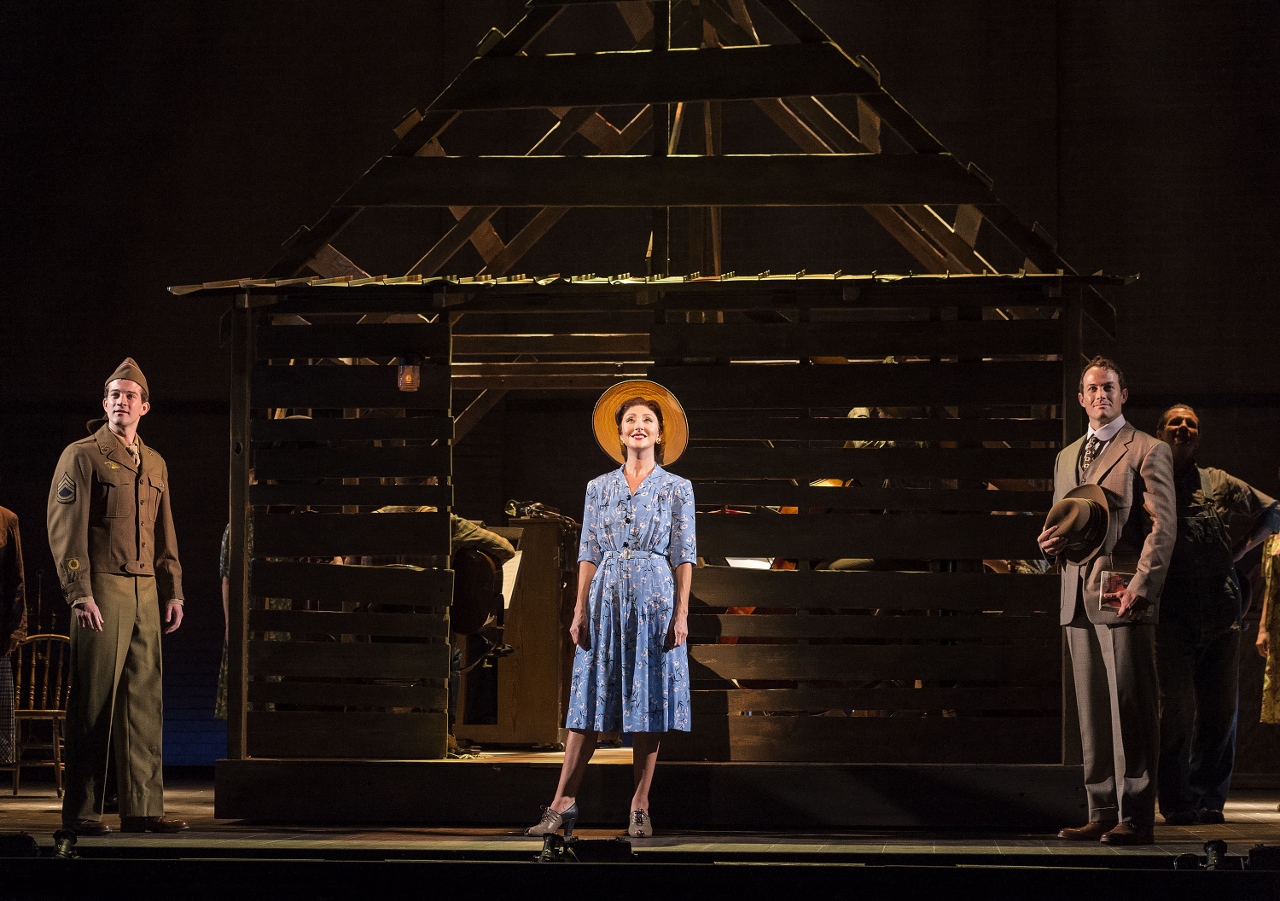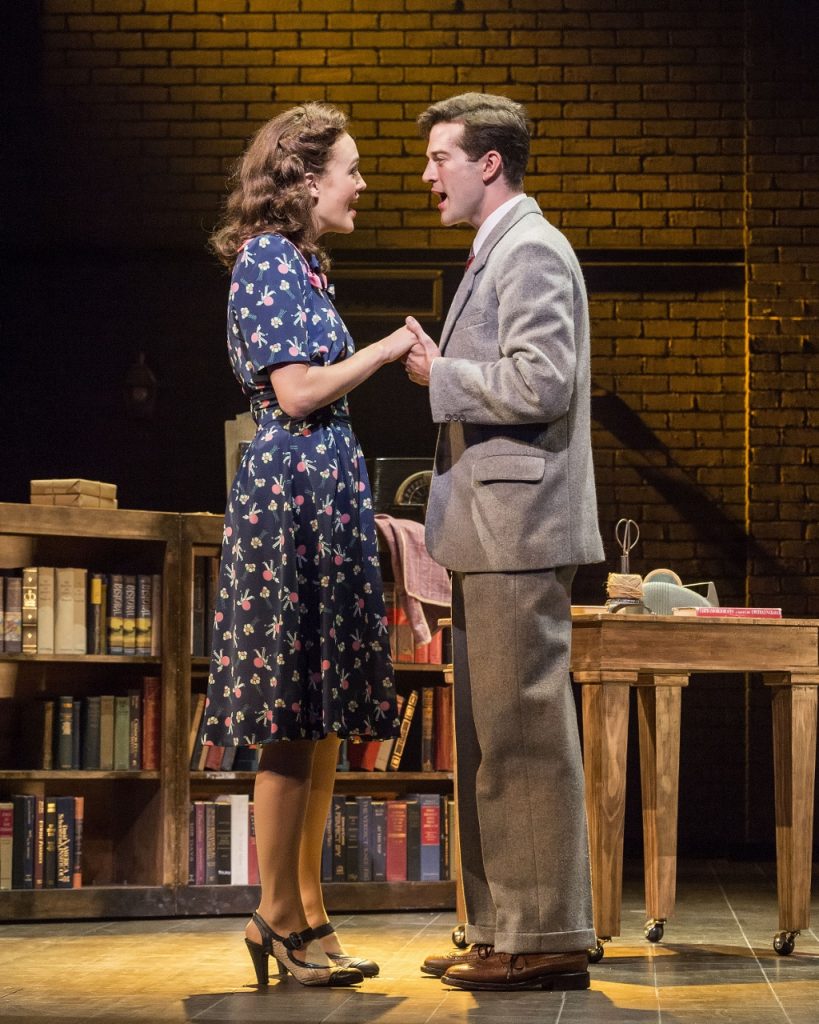LIGHTING UP THE SOUTHERN SKY
Carmen Cusack is luminous. She uses her whole self’”physically, emotionally, vocally’”to open herself to the audience, holding every last one of us in her loving arms. Cusack has been on a multi-year journey with Bright Star, since the Steve Martin/Edie Brickell musical began in a 2013 workshop by the New York Stage and Film at the Powerhouse Theater at Vassar College, had its world premiere in 2014 at the Old Globe in San Diego, then, in a much-rewritten version, opened at the Kennedy Center in 2015, and then went to Broadway in 2016 for a run that turned out to be shorter than most of the theater community expected, and far shorter than its many fans had hoped.
This romantic, nostalgic show is set in North Carolina. It swings between 1923 and 1945, and features a bluegrass score by Martin and Brickell, including songs originally written and recorded by Brickell and released on earlier albums. The story is simple, yet its narrative construction is not. The opening number gives us Alice Murphy (Cusack) in 1945. But in 1923, she is a small-town girl with a wise soul, a smart mouth, and a deep love for Jimmy Ray Dobbs (Patrick Cummings), the son of a wealthy produce tycoon and town mayor.
Alice’s straight-laced parents, Daddy and Mama Murphy (Stephen Lee Anderson and Allison Briner Dardenne) believe they should have brought her up more strictly, but perhaps if they had, it would have only hastened her departure from the tiny town of Zebulon, leading her to explore her passion for literature even earlier. She gets pregnant with Jimmy Ray’s baby, and his rich daddy, Mayor Josiah Dobbs (Jeff Austin) is appalled, willing to go to any lengths to stop his son from being “trapped” into marriage, and Alice and Jimmy Ray’s child is taken from them.
By 1945, Alice has become the kind of sophisticated, brittle editor that would have been played by Katherine Hepburn or Bette Davis. When greeted by a young writer with, “You must be Miss Murphy,” her response is, “I don’t know that I have to be, but I am.” The writer is Billy Cane (A.J. Shively), who has returned from the war only to find his Daddy Cane (David Atkinson) grieving the loss of his wife, Billy’s mother. Billy has dreams of becoming a writer, and publishing stories in the well-respected Southern literary journal that Alice Murphy famously edits. He cluelessly leaves behind Margo (Maddie Shea Baldwin), the girl he grew up with who has come to love him without ever putting it into words, and heads for Asheville.
I won’t say exactly where the story of two star-crossed lovers and their lost child takes us, but if you don’t see it coming a mile away, you’re not paying attention. And that’s okay. There’s something sweet and satisfying about knowing where you’re headed, and this tangled family tale does have some surprises along the way. I’m not certain that its valise-like plot device is meant to invoke The Importance of Being Earnest, but Bright Star certainly takes a darker turn, and creates its own universe successfully.
Director Walter Bobbie takes us effortlessly and inventively between the time periods, using stop and go motion, even a “rewind” effect, and whimsical suggestions of transportation. But Cusack is the true marvel that makes these segues so easy. Her body is entirely different in 1923 than in 1945. An unbridled zest for living infuses her younger self with a spunky energy that keeps her practically bouncing across the stage. She is far more physically contained in 1945, but loses none of her power.
The music is lush and filled with longing, but the lyrics are not as consistently successful. These are characters who love words, yet they too often sing in generalities, opening with, “If You Knew My Story,” and ending with “So Familiar,” and, “At Long Last.” The gorgeous texture of Cusack’s voice and her deep authenticity give her songs a gravitas that transcends language. But language is everything to Alice Murphy, and I think her lyrics could be better informed by that love.
Martin and Brickell’s book has fantastic dialogue but sometimes shaky emotional logic. Would Daddy Murphy really do that? Would either grandfather? Would Jimmy Ray really think Alice would be less devastated by never knowing what happened? Would his parents let Billy go off for an entire month in such an emotional state without trying to find him? A scene of forgiveness in the second act between Cusack and Stephen Lee Anderson is one of the most loving parent/child moments I can remember in a musical. But the less said about the frog hunting scene near the end, the better.
The two leading men, Patrick Cummings and A.J. Shively, are both enormously effective. Jeff Blumenkrantz as Alice’s effete, officious assistant Daryl, brings down the house when he claims to his coworker Lucy (Kaitlyn Davidson) that he doesn’t know how to judge another man’s attractiveness. “Yes, you do,” she deadpans. Davidson is also quite wonderful doing a tipsy dance, as Lucy makes a play for Billy. She’s sexy but never vulgar. The mayor’s slippery assistant, Stanford Adams, a quite small character in terms of stage time, becomes a fully dimensional comic gem in the hands of veteran Kevin McMahon.
I’m not sure how to categorize Bright Star. You might call it a musical fable. Bluegrass on Broadway. A return to a simpler world. Whatever. It is a lovely way to spend an evening, and offers the full-throated delight of Carmen Cusack, the brightest star to come along in quite a while.
Bright Star
presented by Center Theatre Group
Music Center’s Ahmanson Theatre
135 N. Grand Ave. in DTLA
ends on November 19, 2017
for tickets, call 213.972.4400 or visit CTG
